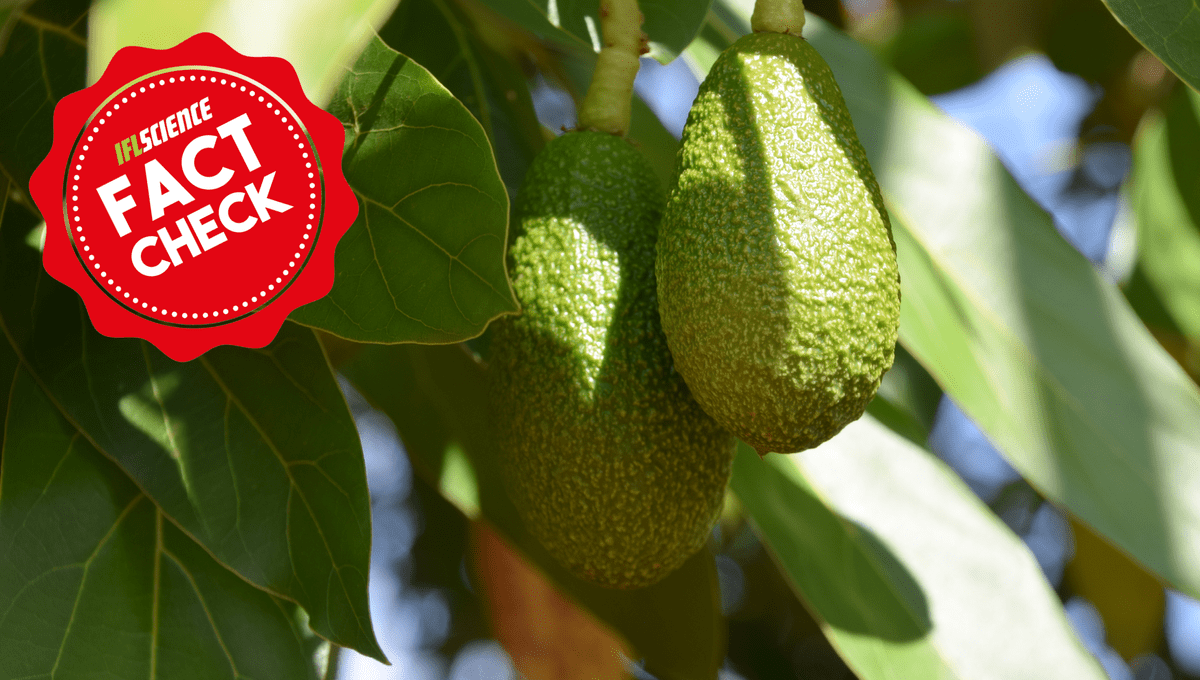
A recent Tweet spreading the testicular origins of the word “avocado” garnered some attention this week, and naturally, our eyes lit up. After all, who doesn’t enjoy a novelty etymology story? Unfortunately, it seems this particular factoid is flawed.
In 2016, the debunking extraordinaires over at Snopes tackled the issue from a different angle in their article Does the Word ‘Guacamole’ Mean ‘Testicle Sauce’? Their conclusion was Mostly False, on the basis that while avocado “comes from a Nahuatl word also meaning ‘testicle’… ‘guacamole’ does not directly translate as ‘testicle sauce’.”
The Nahuatl language (also spelled Nawatl and, in Spanish, náhuatl) is an indigenous language spoken in central Mexico dating back to the Aztecs who ruled in the 14th and 16th centuries. It’s still spoken by around 1.5 million Mexicans, says The Harvard Gazette, and is the origin of many English words spoken today, including avocado.
However, in a blog post responding to the Snopes piece, anthropologist and assistant professor Magnus Pharao Hansen weighed in on the issue to explain that their research had not found the Nahuatl word for avocado – ahuacatl – to mean testicle. Ah nuts.
Where the testicle-avocado confusion stems from, it seems, is Frances Karttunen’s 1987 “Analytical Dictionary” which translates ahuacatl as meaning “avocado, testicle,” explains Hansen, who studies the languages of Indigenous people in Mexico, including Nahuatl. The dictionary references Alonso de Molina, a Franciscan priest and grammarian whose dictionary of the Nahuatl language was published in 1571.
While Hansen concedes that some people in Mexico City during the 16th century were indeed using ahuacatl to refer to fruits and testicles, it seems broader textual references paint a more plant-based picture of the word’s true meaning.
“All textual references to the word that I have come across use it only in the botanical-culinary meaning,” explains Hansen. “And in Nahuatl speaking communities I have never met anyone who considered the word /a:wakatl/ to refer to anything but avocadoes.”
A rejection of the testicle translation as being historically accurate as it pertains to the Nahuatl language, then, but Hansen has a suggestion as to how the wrinkly fruits came to be associated with these organs linguistically.
“It would appear that the anatomical meaning is a euphemism, based on a certain similarity of shape, the same kind of euphemism that we make use of when we refer to a penis as ‘a wiener’ or to testicles as ‘nuts’… We would however not generally consider it to be ‘partly correct’ to say that ‘wiener schnitzel’ kind of means ‘Penis schnitzel’ or that ‘nut case’ kind of means ‘testicle box’.”
A good point eloquently made, and one which convinced the Online Etymology Dictionary to update their definition to include “testicle” as a secondary meaning.
So, if you’re gearing up for a phallus-themed dinner party and were hoping to include testicle sauce in your dip selection, we’re afraid to say that placing guacamole on the table won’t be technically accurate. However, there’s nothing to stop you from enjoying the creative euphemism as a fun nickname for those delicious wrinkly fruits in their pulverized form.
All “explainer” articles are confirmed by fact checkers to be correct at time of publishing. Text, images, and links may be edited, removed, or added to at a later date to keep information current.
Source Link: Fact Check: Are Avocados Really Named After Testicles?